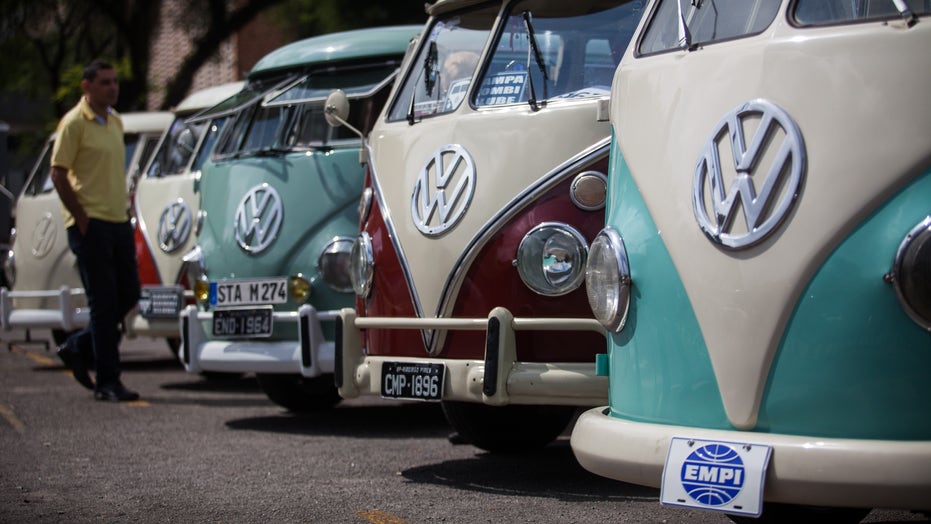For decades it carried hippies to music festivals and hauled surfboards to the beach, but now production of the iconic Volkswagen Kombi – known affectionately in the U.S. as the “bus” – comes to a halt later this month.
After 62 years, the German automaker will finally stop producing the Kombi on December 20 in Brazil, the last country in the world to manufacture the van and a place where the unique-looking automobile has gained a cult following.
"Without my Kombi, I'd be lost," Paulo Enrique Veras, a beach vendor in Rio de Janeiro and Kombi owner told the BBC. "I've been using it for years and there's nothing else that can really do the same job."
Brazil’s environmental and safety regulations – especially those mandating that every vehicle in the country has air bags and anti-lock brakes – have put the proverbial brakes on the Kombi production. But as a farewell gesture of thanks to the Latin American nation, Volkswagen is offering a limited edition Kombi to buyers and collectors.
Sporting a hefty $43,000 price tag, the 1,200 Kombi vans will be available later this month and feature powder-blue paintwork and a trim evoking the 1960s.
Proud Kombi owners in Brazil – and around the world – are mourning the end of production of the beloved bus, with some van lovers holding an exhibition in Sao Bernado do Campo, Brazil earlier this week to celebrate the unique car culture.
Originally known as the Type 2 – because it was Volkswagen's second automobile after the famed Beetle – the van took off in popularity in the United States during the 1960s and 1970s. Advertising slogans promoted the cheap van as “a way of life,” and hippies around the globe bought the ticket and took the ride.
“The van represents freedom. It has a magic and charm lacking in other vehicles. It’s about the open road, about bringing smiles to peoples’ faces when they see an old VW van rolling along,” Damon Ristau, director of the documentary film “The Bus.”
In the so-called developing world – such as throughout much of Africa and Latin America – Kombi production continued well into the 21st century, as its stripped-down, basic design and ease of manufacture made it ideal for small-time vendors and business owners to haul goods.
In Brazil, the Kombi has functioned as a rolling food cart, a postal truck, a military transport vehicle and even as a modified hearse.
"We still sell more than 2,000 units a month," said Volkswagen's Marketing Manager Carlos Leite, adding that Brazil is losing an icon but not replacing it with anything.
Follow us on twitter.com/foxnewslatino
Like us at facebook.com/foxnewslatino









































